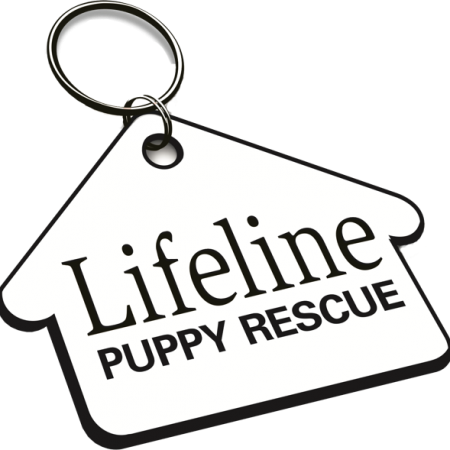Tips on How to Travel with a Puppy
Traveling with a puppy is fun and exciting, and also a great time to teach the puppy manners they'll retain into adulthood. You get the enjoyment of having your puppy with you at its most tender stage of life as you explore the world around the two of you. The key to a successful trip is to be mindful of your surroundings, keep an eye on the people approaching your puppy, and make sure that the puppy is always kept under your control. Following are some tips to help you travel safely with your four-legged companion and avoid mishaps.
Travel Safely
Make sure to keep your puppy properly restrained in your vehicle before getting behind the wheel of your car. That means using the appropriate sized crate that can be secured to the car. Make sure the crate has enough room so your puppy can move freely whether it's standing up, turning around, or lying down. If you're going to be flying with your pup, contact the airline to find out what size crate is allowed for your puppy.
If you can't use a crate in your car, use a special restraint harness that buckles to the seat and holds the puppy in place during an accident. Restraint harnesses allow the puppy to move around with ease, but won't allow her to move freely through the interior after an impact.
If it's hot out, don't leave your puppy in the car unless you can lock the doors and leave the car running in a safe fashion. Cars get hot quickly and a puppy doesn't have the heat resilience of an adult dog. Make necessary stops as short as possible and park the car in a shady spot if available.
Keep an Eye on Who Approaches Your Puppy
People love puppies and want nothing more than to pet and play with them for a bit. You need to be able to read the body language of your pup and make sure that it's ok for people to approach and pet her. Puppies are more likely to overreact to people who want to pet them because they tend to have poor impulse control even with training. If you know your puppy is still mouthy and likely to nip, tell people that she's excitable and not responsive to being pet at that moment. Your goal is to avoid a dog bite situation and prevent the puppy from getting overstimulated. You're spared the need to calm the puppy down later, avoid behavioral problems, and don't have to worry about someone getting bit.
Have Recent Veterinary Records
A growing number of hotels are allowing pets onto their properties and most of them don't require veterinary paperwork. But if something goes wrong while you're there, or the hotel does have a requirement, you're prepared. If you get asked if your pup is up-to-date on her vaccinations, you can show acceptable proof. And in the event something happens that requires an emergency visit to a local vet, you have health papers to show the vet to help them handle the emergency.
Use as Much ID as Possible
Accidents happen and there's always the risk of separation when traveling. Having your puppy microchipped, wearing a collar, an ID badge on the leash, and contact information on the crate helps reunite the two of you if separation does happen. It may seem like overkill to have that much ID on your pup, but it makes it easier for people to reconnect the two of you.
Another way to ID your puppy is to have multiple pictures from different angles on your phone. If she has a unique mark that can be used to identify her, take a picture of it. The more pictures you have, the better as it shows definitively that you're her owner.
Bring Along Food and Water
Puppies eat a lot of food as they grow and sometimes they have special requirements because they have a sensitive stomach. It's important that your puppy eat regularly while traveling to ensure they get the nutrition they need for proper growth and energy levels. Carry as much spare food as you can to avoid the need to stop at a store and buy unfamiliar foods that can upset the puppy's stomach. There's nothing worse than dealing with a sick puppy in the car and you want to avoid it at all costs.
Bring a large container of water from home for those times you can't get to a source of potable water or if the puppy doesn't like the taste of unfamiliar water. Puppies can become dehydrated quickly and don't tolerate it as well as an adult. Keeping a container of water in the vehicle, you don't have to go out of your way to find something for the puppy to drink. And having freshwater nearby is especially important if you're visiting the oceans or the Gulf of Mexico and the puppy decides to try the saltwater. The saltwater isn't harmful, but it can lead to dehydration sooner than later.
Keep a Bag of Spares and Necessities
Leashes and collars come loose, puppies have accidents, and insecurities come to the fore. Bring extra collars and leashes in case something breaks or gets left behind. Make sure to have a waste scoop, bags for disposal, any necessary medications, and grooming supplies. Puppy training pads also come in handy when you're staying in a hotel room. If possible, bring along a travel pen to contain the puppy and give her a break from being on the leash. The travel pen also works in a hotel room and a puppy pad can be used as a liner. Bring along the puppy's bedding from home to give her a sense of the familiar in unfamiliar surroundings and help her relax.
The goal of traveling with your puppy is to have fun and enjoy the experience. These tips will help you get the most out of your time together and with the least amount of stress and build the lifetime bond between you and your puppy.


